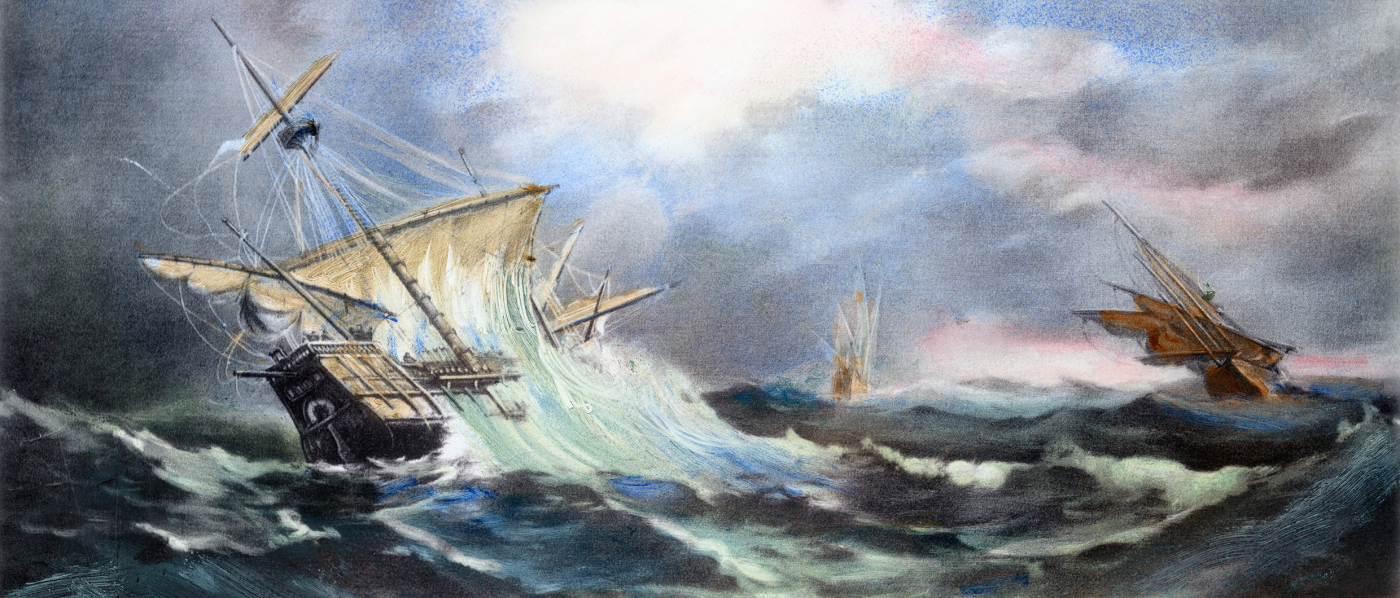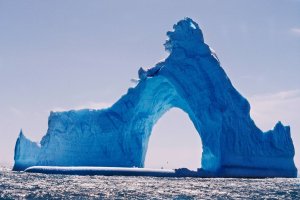‘Archipelago of Isolated Economies’: World During a Storm
The world economy is facing fragmentation and deglobalisation, with countries raising tariffs to defend national economies against trading partners. The established paths of capital flows are changing. Economic uncertainty has become a new reality. ‘The situation is altering as rapidly as social media post news on the US administration’s announcements,’ noted Bank of Russia Deputy Governor Alexey Zabotkin who moderated the session of the Bank of Russia’s Financial Congress.
Forecasting in these circumstances is an extremely challenging task. Nevertheless, the participants in the session tried to analyse the tectonic shifts occurring in the world economy and discuss how the global economic landscape might evolve as a result, as well as to give advice to stock market investors on how to behave in turbulent conditions. Econs publishes a summary of the discussion.
Alexander Knobel, Director of the Centre for International Trade Research, RANEPA:
- We can argue that the primary reason for the US trade war is generally the fact that the rules of the game followed by economies after the Second World War, when liberalisation was beneficial to those countries that were promoting it, no longer correlate with these countries’ economic interests. The matter is that the situation around the globe has dramatically transformed since then. By the turn of the century, the share of advanced economies in global GDP became smaller than that of developing countries, at least in terms of purchasing power parity, which was associated with the fast growth in China, Southeast Asia, and India. The sustained surplus of developing economies in foreign trade with advanced economies implies that the former actually export much more than they import. Advanced economies have been experiencing increasing inequality in the distribution on disposable incomes, which encourages them to use protectionism. China’s aggressive technology borrowing strategies may have been non-critical for the USA as long as China lagged three to four generations behind the USA. However, after the lag decreased to just one technological generation, this might become a security concern for the US administration. All that entailed the restrictions that Trump enacted during his first term. It is worth noting that almost all the restrictions imposed by Trump remained effective under Biden.
- When China introduced reciprocal tariffs in 2018, the world economy lost nearly $160 billion per year, according to our estimate. In particular, China lost 1% of GDP, while the USA lost 0.3% of GDP. In other words, they were all losers, while failing to achieve the declared goals, that is, the contraction in these economies’ trade was minor. By the beginning of Trump’s second tenure, the fundamental reasons (link in Russian) that had caused the trade war were still there, and consequently, the US administration started acting more aggressively.
- Today, we can merely speculate about the decisions that Trump’s administration might take, especially as Trump might make an about-face within a week. If the tariffs remain at the levels as of 4 July [the date of this discussion at the Financial Congress], potential losses for both the world economy and the US and Chinese economies might be commensurate with the losses resulting from the trade restrictions that Trump imposed during his first tenure. However, the US administration will most likely raise the tariffs from this low level. The tariffs announced in early April are another extreme situation. Global GDP in this worst scenario might contract by over $1 trillion. But then again, it is unlikely that the countries will implement tariffs that high. Nevertheless, I am sceptical about a return to the liberalisation path of the second half of the 20th century. The restrictions to stabilise in 2025 are likely to be extended at least until the end of Trump’s tenure, and it is hardly possible to expect any significant liberalisation under the next US president.
Ksenia Yudaeva, IMF’s Executive Director for Russia:
- Today, the US current account deficit is approximately 1% of global GDP and is nearly two-thirds covered equally by the Chinese and the European surpluses. In other words, it is not that advanced economies are against developing countries – certain advanced economies have a surplus in the balance of trade as well.
- The shift in economic policy is nonetheless attributed to political and economic reasons. Overall, countries benefit from trade liberalisation. However, there are both winners and losers inside a particular economy. For everyone to win, a redistribution system is needed. When such a system does not work, many are disappointed with the results. This discontent becomes the main argument about the ‘unfairness of trade’ used not only in the USA – let us recall Brexit when the UK authorities generally complained about the same thing. It is often simpler to refer to an external reason, rather than address the internal one.
- I believe that, in addition to implementing trade and protectionist measures, countries are somehow returning to Keynes’s ideas that he tried but failed to incorporate into Bretton Woods institutions (link in Russian). That was when the USA disagreed. Keynes posited that both deficit and surplus countries should take measures in a situation of mismatches. If we leave aside the tariffs, this is the argument that is increasingly frequently heard in global politics.
- Heightened uncertainty is a huge problem itself, which adversely affects economic growth and economic agents’ behaviour and might entail rather serious economic consequences in the long term.
- On the one hand, a trade shock is a shock to the world economy as a whole, while on the other hand, it is not the same for all countries, unlike previous shocks, such as the global financial crisis and the Covid-19 pandemic. Over the period of both these events, all countries experienced a severe demand shock, responding to it in a symmetrical way. By contrast, for the USA, the current shock is primarily a supply shock, whereas for the EU and many other countries, for example, it is a demand shock. Therefore, economic indicators, such as inflation rates, can respond to the shock differently across countries.
- Today, in addition to protectionism, there are also changes occurring in what we call the international currency system, where we are now observing fragmentation, redirection of capital flows, a growing role of gold, and a strengthening influence of other currencies. Christine Lagarde, President of the European Central Bank, publicly supports the idea that the current shift offers opportunities for the euro to increase its global status as an international reserve currency. China has been increasingly widely using the yuan (link in Russian) in trade transactions in recent years.
- The whole complex of what is commonly referred to as geopolitical risks or geopolitical fragmentation leads to a situation where both trade and financial flows start to concentrate within certain blocks, entailing serious changes in both the economy and the financial sector. April was memorable for many not so much because of elevated volatility, but because of an episode which seemed to be a typical risk-off scenario. However, a typical risk-off (link in Russian) did not happen, with financial flows shifting not towards, but to the contrary, away from the US assets. In this case, we need to analyse the reasons behind this abnormal response in financial markets in order to find out whether that was the reaction to the tariffs or a long-term trend.
- Capital controls are another factor that has not yet become a trend. As far as I understand, the US budget no longer includes capital controls, but the mere fact that they are back in the discussion seems rather important, in my opinion.
Hayk Avetisyan, Head of Macro Directorate, Central Bank of Armenia:
- First of all, I would like to say that I am among those who highly appreciate free trade and free flows of resources across countries. It is an open economy that creates conditions for resources to be distributed efficiently and in the optimal way.
- Currently, we are observing a situation of high uncertainty. It is stemming from two factors – US policy, on the one hand, and economic decisions that might be taken by other countries, on the other hand. This is a new reality that we have not been facing for the last five to six decades. It is therefore almost impossible to forecast future developments in global trade. I believe it important to assume a wide range of possible development paths and assess risks to the national economy. This is the approach underlying the new monetary policy system of the Central Bank of Armenia. The key is to abandon precise forecasting and discuss possible monetary policy strategies in multiple scenarios amid high uncertainty.
- If the deglobalisation trends turn out to be structural rather than transitory, this might minimise the positive effects of globalisation, that is, high economic growth rates and low inflation. We would ultimately find ourselves in a long-lasting situation of weak global demand combined with persistent inflation shocks. The second narrative arises from the uncertainty of financial markets: we might face shifts in global capital flows towards countries with more robust economic policies and responsible fiscal and monetary policies. These countries might be developing economies, including Armenia.
- Bogged down in the conflict, the USA, the EU, and China would most likely bear the brunt. By contrast, third countries might even benefit from the redistribution of capital flows, which has been the case in Armenia (link in Russian) for the past three years. Can this scenario repeat? Yes, it can. However, the current situation is of a global scale, and therefore, future developments are much less predictable. If regional and global conflicts intensify, this might disrupt supply chains and push up imported inflation. Our task as policymakers is to analyse how well monetary and macroeconomic policies can address such risks and what decisions we can take to mitigate losses.
Irina Krivosheeva, Management Board Chairperson and CEO, Alfa-Capital Management Company LLC:
- One would think that the Russian stock market should react less to global developments, including certain statements by the US president. Nevertheless, if you recall the cheerful spring, the market was very optimistic in March as all Telegram channels were making multiple posts recommending investment in Russian stocks amid potential geopolitical stabilisation. However, in early April, Donald Trump announced large-scale tariffs, causing a downturn in the Russian stock market, which was the worst since 2022, while the risk index equalled 9 out of 10. They even started joking that à la russe stability is when an 8% decline over a week (link in Russian) might be called a smooth adjustment. All new abnormalities of the current period are still affecting all global capital markets, including Russia’s.
- We can highlight five characteristics of the new reality in capital markets. The first is, definitely, higher volatility. Previously, we tended to analyse companies’ financial statements in the first place rather than rush to read what the largest economies’ leaders said. Second, there is a decline in global growth rates and corporate profits. Companies face extra costs and have to rearrange their chains of interaction. The third factor is the pressure on the foreign exchange market since any trade war inevitably provokes currency wars. The fourth characteristic is a rise in the geopolitical risk premium, which has become very important for the Russian market. The fifth factor is the shift in capital flows and the change of leaders, including among companies. Earlier, investors opted for companies focusing on global markets and international diversification, whereas today, they tend to prioritise domestic demand-oriented enterprises.
- Protectionism is transforming markets into an archipelago of isolated economies where an investor is no longer a navigator, but a cartographer drawing new maps after every storm.
- There are three recommendations that I would like to give to investors in a situation of global trade wars. The first one, as old as the hills, is diversification: across deposits, stocks, bonds. The second one is a clear distinction between liquid and illiquid savings instruments. The third recommendation is to have a strategy as it is more important than a quick response. Investors should not ‘react with their feet’ to every piece of news.

.png)





